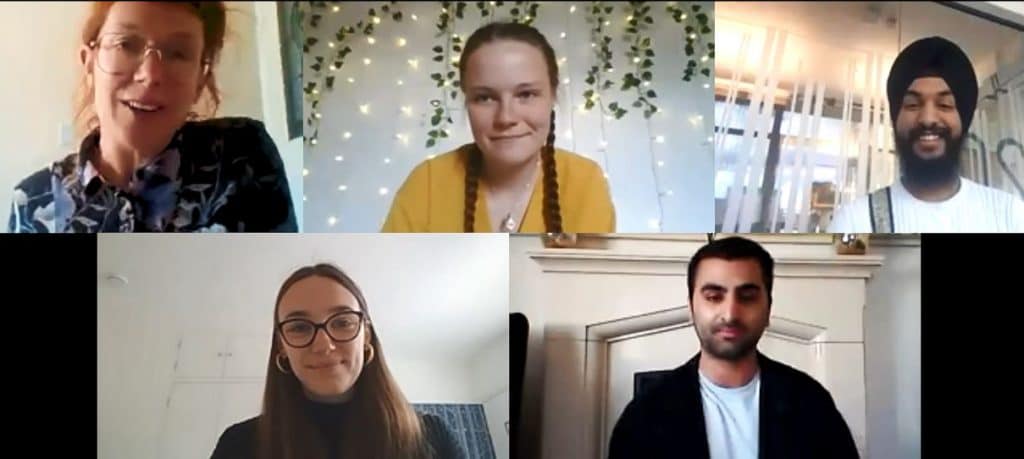Unity and compassion in pandemic have strengthened our faith, say younger people
Seeing faith organisations demonstrate unity, compassion and community in person and online during the pandemic has strengthened and deepened the faith of many young people dealing with lockdown in the UK.
That was the consensus of panellists discussing the impact of the pandemic and lockdowns on young people and their faith at this year’s Religion Media Festival — Exploring Belief.

Jaspreet Singh, a recent graduate of the Faith and Belief Forum’s ParliaMentors Programme and president elect of Birmingham City University Students’ Union, described how community support networks were changed deliberately during the pandemic.
“Before the pandemic people would come to a gurdwara for help, but Covid-19 meant a lot of the elderly were not able to come. So young people started going out and supporting them, distributing food and toiletries to those who might be really poor. Those of us with cars could actually go and deliver food home to home.
“Young legs are now going out and serving others,” he said, adding that the idea of compassion and service was the thread that bound together all religions during these hard times.
Iso Neville, the Church of England’s social media officer, added: “With the kind of trauma and tragedy of the past year, communities of faith and religion have really started to look at what their communities need, and what are the most pressing demands and concerns at the moment.”
She believed churches and faith communities have made giant leaps — whether providing Book of Common Prayer services online or the wider community coming to church and realising that there was something that was suitable for them or comforting.
Mary Sharples, a drama student in Manchester and a youth representative for the Methodist Conference, believes churches have been forced to become much more accessible and this can be “the new normal” with the help of new technology.
“We know that we can make church inclusive and accessible to groups of people who may not be able to come into the church physically. It’s really wonderful how many people have found faith communities to be their rock during this whole year,” she said.
“It’s really interesting to see such a big switch for all kinds of faith communities in terms of things like more food banks and the more practical side of faith and serving those in the community, whether they believe or not. Particularly interesting is the mindset switch for those in the community that haven’t previously engaged with faith communities but have now almost been forced to depend on them.”
She added: “I’ve really appreciated the wonderful shift to a much bigger focus on faith and wellbeing through church online platforms on a larger scale than individual church communities through youth programmes, Instagram and Twitter accounts and other social media. There’s been great output around trying to ground your faith and your wellbeing and finding strength and calming your anxieties.”
Nikhwat Marawat, a mental health campaigner, activist and UK Youth Voice’s regional representative for the West Midlands, described the pandemic as a period of transformation in which he became a lot more spiritually-minded.
“I actually stopped going to the mosque and mostly prayed a lot at home. I’ve taken time to educate myself and read with people and it’s put me on a much better path as to where I’m at. It’s really helped shift my own support in towards my own self and it’s broadened my mind even more. I love being in these kinds of spaces.” – Nikhwat Marawat
The session was chaired by Dr Kate Christopher, an RE teacher and director of Teach:RE for the Culham St Gabriel’s Trust.
View the entire panel discussion’s video on the RMC's YouTube Channel.
This article by Anna Averkiou first appeared on the Religion Media Centre Website in May 2021.